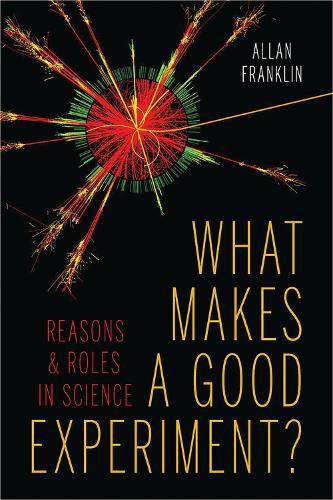Overview
What makes a good experiment? Although experimental evidence plays an essential role in science, as Franklin argues, there is no algorithm or simple set of criteria for ranking or evaluating good experiments, and therefore no definitive answer to the question. Experiments can, in fact, be good in any number of ways: conceptually good, methodologically good, technically good, and pedagogically important. And perfection is not a requirement: even experiments with incorrect results can be good, though they must, he argues, be methodologically good, providing good reasons for belief in their results. Franklin revisits the same important question he posed in his 1981 article in the British Journal for the Philosophy of Science, when it was generally believed that the only significant role of experiment in science was to test theories. But experiments can actually play a lot of different roles in science—they can, for example, investigate a subject for which a theory does not exist, help to articulate an existing theory, call for a new theory, or correct incorrect or misinterpreted results. This book provides details of good experiments, with examples from physics and biology, illustrating the various ways they can be good and the different roles they can play.
Full Product Details
Author: Allan Franklin
Publisher: University of Pittsburgh Press
Imprint: University of Pittsburgh Press
Dimensions:
Width: 15.00cm
, Height: 3.30cm
, Length: 23.00cm
Weight: 0.825kg
ISBN: 9780822944416
ISBN 10: 0822944413
Pages: 384
Publication Date: 03 May 2016
Audience:
College/higher education
,
Postgraduate, Research & Scholarly
Format: Hardback
Publisher's Status: Active
Availability: Available To Order

We have confirmation that this item is in stock with the supplier. It will be ordered in for you and dispatched immediately.
Reviews
Allan Franklin s analysis of various relevant experiments raises important philosophical issues and also provides insightful ideas that one can develop further. His books have proven an invaluable source for the purposes of philosophical and historical analysis of experimentation, and What Makes a Good Experiment? is no exception. Slobodan Perovic, University of Belgrade
Allan Franklin s analysis of various relevant experiments raises important philosophical issues and also provides insightful ideas that one can develop further. His books have proven an invaluable source for the purposes of philosophical and historical analysis of experimentation, and<i>What Makes a Good Experiment?</i>is no exception. Slobodan Perovic, University of Belgrade
Author Information
Allan Franklin is professor of physics at the University of Colorado. He has twice been chair of the Forum on the History of Physics of the American Physical Society and has served two terms on the executive council of the Philosophy of Science Associatio




